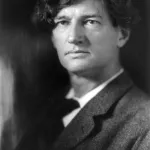I.
It’s the season of wine, meadows, and Rose
The court of spring is cleared of choughs and crows
Generous clouds now water Rey[1] more freely than Khotan[2]
The caged bird and I both long for our own land
How wayward are you, Heaven!
How vicious are you, Heaven!
You’re headed to vengeance, O Heaven!
You have no faith
You have no creed—no creed
O Heaven!
II.
Tulips have bloomed from the blood of the youths of our land
Lamenting those cypresses, Cypress can no longer stand
A mourning nightingale creeps under Rose’s shadow
And Rose, like me, has torn her robe in sorrow
How wayward are you, Heaven!
How vicious are you, Heaven!
You’re headed to vengeance, O Heaven!
You have no faith
You have no creed—no creed
O Heaven!
III.
Asleep are the vakeels, corrupt are the viziers
They have plundered the silver and gold of Iran
Lest they leave our home a ruin
God, judge the emirs, dry the paupers’ tears
How wayward are you, Heaven!
How vicious are you, Heaven!
You’re headed to vengeance, O Heaven!
You have no faith
You have no creed—no creed
O Heaven!
IV.
Capsize the earth with tears
If you have a fistful of Iran’s soil, pour it over your head
Manifest your honour, beware of dark days
Let your bosom be a shield before enemy spears
How wayward are you, Heaven!
How vicious are you, Heaven!
You’re headed to vengeance, O Heaven!
You have no faith
You have no creed—no creed
O Heaven!
V.
At the foe’s hands I howl in pain
Whoever fears death is by fear slain
The lovers’ dance of death is not a game of chess
If you have courage, prepare for campaign
How wayward are you, Heaven!
How vicious are you, Heaven!
You’re headed to vengeance, O Heaven!
You have no faith
You have no creed—no creed
O Heaven!
VI.
‘Aref[3] relies not on days since the dawn of days
Like Khayyam, he holds no hand but the wine cup’s
Gives his heart only to the beloved’s curls
Trades not a hundred lifetimes of shame for one with a name
How wayward are you, Heaven!
How vicious are you, Heaven!
You’re headed to vengeance, O Heaven!
You have no faith
You have no creed—no creed
O Heaven!
Āref Qazvīnī urges us to take a stand, to defy dictators, to expose corruption and injustice.
- What season is it in the poem? What is the speaker’s mood? How does the situational irony work in this poem?
- This poem makes an emotional call to action. Is the use of traditional metaphors, such as nightingale, rose, tulip, cypress, etc. effective in this context?
- As a song, the piece has a chorus that acts like a recurring refrain. What does this repetitive section add to other stanzas?
- In Persian poetry, takhallus or signature verse is the inclusion of the poet’s name or pen name in the final lines of a poem. Oftentimes, the name is introduced as a character in the third person (she or he), a person other than the speaker. Sometimes, it is directly addressed in the second person (you). The device adds an additional dimension to the drama unfolding in the poem. It introduces an aesthetic distance through which self-critique becomes possible as the new character bears the same name as the poet. The speaker describes and/or critiques this character, comments on their views and attitudes, and distances themself from them. What kind of character is ʿĀref in the final stanza of the song before the last chorus? How different from or similar to the persona / speaker of the poem is he?
- How many different voices do you detect in the poem and how would you render them in recitation?
Writing Activity:
- Write a poem using traditional metaphors in English literature to make a contemporary call to action. Here are a few: candle, moth, cloud, mist, castle, dagger, sword, armour, mountain, river, storm, ocean, flame, and blood. You can find more by checking the works of poets before the twentieth century.
Suggested topics include but are not limited to: patriotism, anti-corruption, anti-censorship, anti-racism, gender justice, women’s rights, children’s rights, climate justice, and other urgent topics of our time.
- This song/ poem is a translation. If you know another language, choose a political poem in that language, and translate it into English. Select a historically significant poem or song that deepens the readers’ understanding of the original culture.
Useful Links:
- Constitutional Revolution, Encyclopædia Iranica: https://www.iranicaonline.org/articles/constitutional-revolution-index
- Constitutional Revolution, Iran Chamber: https://www.iranchamber.com/history/constitutional_revolution/constitutional_revolution.php
- This song has been performed by numerous Iranian singers over the years. Here is a short video clip of a performance by Parastoo Ahmadi in 2019: https://www.youtube.com/watch?v=w9gAv6AA2EU
Aref Qazvini, "Tulips Bloom from Youths’ Blood" Translated by Bänoo Zan. Copyright © 2021 Bänoo Zan. Reprinted by permission of the translator.
Source: Tulips Bloom from Youth's Blood (Consequence, fall 2021 Volume 13)





